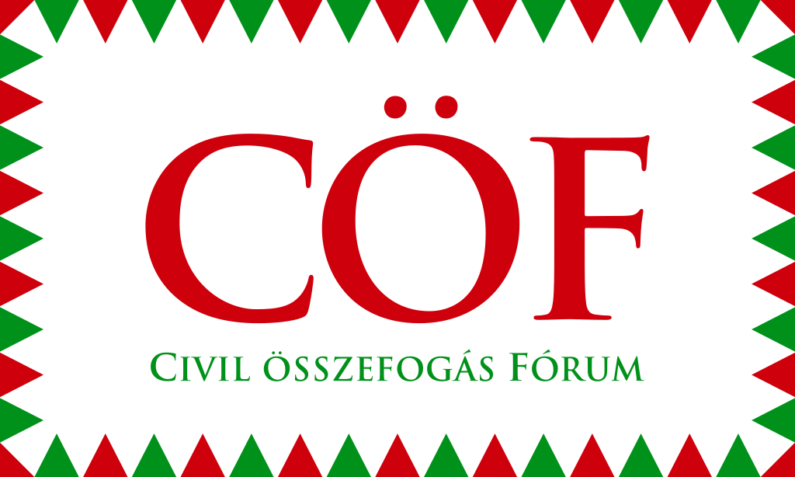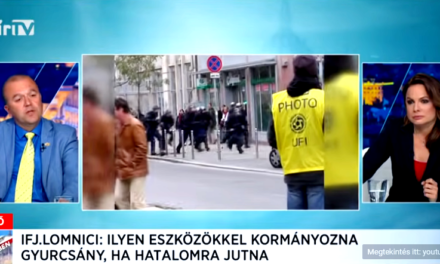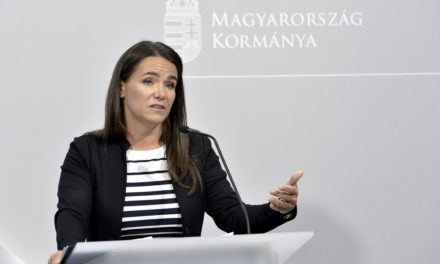The Court of Justice of the European Union sanctioned the politically based double standard with today's judgment. Our related open letter to the President of the European Commission, Ursula von der Leyen.
It was not particularly surprising that the Court of Justice of the European Union, based in Luxembourg, rejected the Hungarian and Polish claims regarding the rule of law conditionality decree in its judgment, declaring at the same time that the standard linking EU funds with rule of law criteria was adopted on an appropriate legal basis.
The decision was foreshadowed, among other things, by the statement made by Commission Vice President Vera Jourová in an interview earlier: she is determined that the European Commission enforce the relevant financial mechanism. To this end, he also mentioned the freezing of EU budget subsidies as a possibility for member states that, in his opinion, violate their obligations. The EU commissioner responsible for values and transparency practically threatened some Central European countries with this.
Meanwhile, the European Parliament with its left-liberal-green majority kept the Commission under constant pressure to use the new – now numerous – rule of law weapon against Hungary and Poland as soon as possible. In the draft resolution adopted by the Parliament, the main political groups called on the body led by Ursula von der Leyen to initiate the rule of law mechanism established last year. The extraordinary procedure of the EU court was also initiated by the Parliament.
In the face of Jourová's threats, Hungary and Poland resolutely defended and continue to defend their sovereign political interests even in the middle of the epidemic crisis, and on March 11, 2021 - shortly before the deadline - they filed a lawsuit at the European Court of Justice. The left-liberal majority of the EP already condemned our country last year, of course, on the one hand, they are trying to set this up so that last year's agreement is only a political statement, that is, they have no real legal weapon in their hands, but at the same time, this is contradicted by the fact that the left, the Greens, liberals and Christian Democrats also emphasize that in the resolution that the Hungarian and Polish claims will not have a suspensive effect - that is, the conditionality decree was still viewed as a usable legal instrument. Since they have not been successful so far, they are now urging the Commission to start using the mechanism as soon as possible.
Of course, it will not be easy for them, since the European Anti-Fraud Office (OLAF) is the agency of the European Union that protects the Union's financial interests on several fronts. Its seat is in Brussels. 47 percent of OLAF's investigations lead to prosecution, while the European average is only 42 percent. Chief Prosecutor Péter Polt previously drew attention to the fact that, according to him, the cooperation between the European Union's anti-fraud office and the Hungarian authorities, which is successful, 52 percent of the procedures related to OLAF reports have so far reached the judiciary, which exceeds the EU average.
In our country, the low presence and restraint of corruption and the question of a healthy functioning economic system and mechanisms are related to the rule of law, the democratic nature of the state and public administration. The sustained growth and purification processes of the Hungarian economy in recent years, the reformed tax system, the process of red tape reduction, modern, e-based, transparent administration at the appropriate levels of public administration offices together represent a better environment for efforts to curb corruption. (Here is just one positive example: in Hungary, the number of public procurements without a notice has decreased from 3,000-3,500 in 2015 to 200 per year today.)
However, there is an important basic principle in law, the presumption of innocence, according to which no one can be considered guilty or a rule breaker until their responsibility according to legal norms has been established by a final decision of a judicial authority.
Today, we have also not received reassuring answers as to who will carry out the "investigative actions" included in the mechanism and how, who will decide on the sanctions and how they will be applied (repayment or withholding), and on the basis of what legitimacy, an adversarial procedure (listening to both parties) can we expect from the Commission, can they guarantee the protection of the national identity of the member states according to Article 4 of the Basic Treaty and, of course, the principle of sovereignty, and will they be required to possibly violate the principle of non-retroactivity?
If Jourová and many others in Brussels forget about the two institutions of legal security that his suggestions above summarize, that is, the predictability of the functioning of legal institutions. Because the EU regulation affecting the conditions of the community budget violates the principle of guarantees of legal certainty in almost every respect, and its implementation would only increase uncertainty within the community. The constant threat of the "rule of law" would not strengthen European unity, but division. The political consideration presents a double standard of a constructive legal institution and an ideologically based one, which would shake the trust in the EU institutions and ultimately endanger the survival of the community. Is this really what Jourová and other left-liberal executives in Brussels want?
The left-wing opposition can misinterpret today's decision of the court precisely because of the above doubts, and celebrate the verdict as if it had at least won the elections, whose integrity is of course - and we can treat this as a fact - violated by the timing and theatrical nature of the announcement of the verdict.
As a committed representative of the Hungarian national citizens, we consider that today's decision of the court and the attitude of Brussels in general towards the procedures mocking the rule of law violate popular sovereignty, they try to weaken the principle of popular sovereignty, and by giving almost exclusively NGOs a meaningful space in the EU procedures, they violate the also the enforcement of civil pluralism. This kind of double standard makes the EU uncomfortable, it not only slows down the process of integration, but is also capable of undermining it.
Management of CÖF-CÖKA












